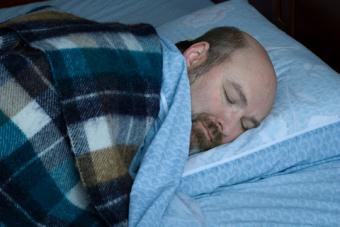
Is there any scientific evidence or "napping psychology" that proves the benefits of napping? After all, if you get a full eight hours of sleep, you shouldn't need a nap, right? In fact, doctors take note of how frequently you might nap as one criterion in diagnosing a sleep disorder or other possible health problems. It's interesting then that current evidence is showing that napping can benefit your productivity at work, your mood, and even your health. While too much napping may indicate a problem, power napping seems to provide an abundance of benefits.
Napping Psychology
In the last decade, there has been a lot of research that indicates that napping definitely could have its benefits. Even before published research, many countries around the world have enjoyed an afternoon "siesta" of sorts where businesses shut down for a few hours during the afternoon. The thought is that mid-day napping increases productivity and safety, and makes for happier employees. However, it's now becoming more recognized that the long honored siesta, really has some benefits.
Conquering the Afternoon Dip
Almost everyone knows that feeling: it's about an hour or so after lunch, and all of a sudden, your eyes are heavier, and you feel lethargic. Described as the afternoon or midday dip, it's the time of day that every office worker and student dreads as it becomes increasingly more difficult to focus on the task at hand. While many people try to caffeinate their way to more energy, research suggests that it's actually a twenty minute power nap that will best help you overcome that drowsy feeling. However, most people will choose the caffeine over a nap.
Cognitive Function
Researchers from the University of Haifa did research on napping and long term memory function. They taught two groups a specific task with a series of steps. They then let one group stay awake and the other group had a 90 minute nap time. Not surprisingly, the group who took naps improved when they went back later in the evening to complete the same task. The group that did not nap, showed no improvement.
Napping Psychology and a Healthier Heart
While there are many studies on the benefits of napping to cognition, productivity and stress, the newest trend in napping psychology research is to examine whether or not napping is beneficial to one's health. Harvard University, along with the University of Athens Medical School followed 23,000 adults over the span of six years. Researchers measured the participants' physical activity and diet as well as whether or not the subjects napped and, if they did nap, how often. Subjects who napped at least three to four times per week decreased their risk of heart disease by about 40 percent.
Napping Psychology in Corporate Culture
While it cannot be said that napping through the afternoon has been embraced by all, there are certain signs that the power nap may become as much a part of corporate culture as dress codes and the Blackberry.
Executive Napping Centers
In response to the idea and studies that have suggested that napping increases productivity, some businesses now provide a quiet, relaxing place to nap. Yelo, a health and wellness center in Manhattan, is one such place where businessmen and women pay about $24 for a private room where they can take a 40 minute nap.
The Energy Pod
For $14, you can relax in one of MetroNap's patented energy pods in the Empire State Building. The energy pod is a high tech chair that lulls you to sleep with relaxing music, then wakes you in about twenty minutes with gentle vibration and dim lights. In less than 30 minutes, you can completely recharge your batteries. MetroNaps sells their energy pods to various corporate businesses so that those businesses can, in turn, offer employees a "napping center" on site. MetroNaps offers its "Fatigue Management Services" to companies that are looking to increase employee productivity.
Is Power Napping a Future Trend?
Although research continues to show that power napping has its benefits, the napping trend is slow to catch on in the world of business. With that said, more and more businesses are catching onto the idea that napping could be a good thing.







